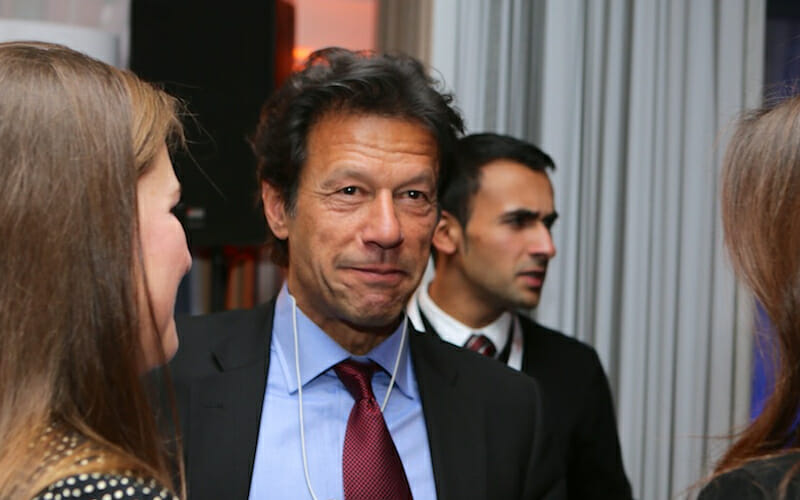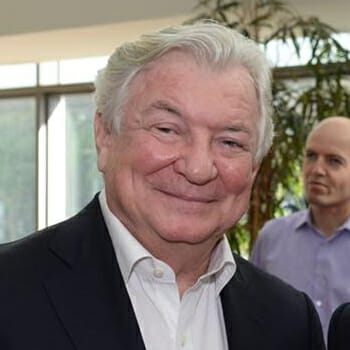
Pakistan Deserves U.S. Support
Over the past two weeks alone, four devastating terrorist attacks in Pakistan–targeting political rallies, a government convoy, and an election office–killed hundreds of innocent civilians. The Islamic State took responsibility for all of the attacks. To say that Pakistan is not at the front lines of the fight against violent extremism is patently absurd. But this is the position of some in Washington who would deny Pakistan the tools it needs—in terms of military hardware, financial support, and political encouragement—to bring terrorists to heel.
With former cricket great Imran Khan claiming victory in Pakistan’s second democratic transition in Pakistan’s 71-year history, Pakistan is set on a new trajectory with a new prime minister promising changes in a country that has been marred by corruption and violence. I had the opportunity to have dinner last week with Pakistan’s new Ambassador the U.S., Ali Siddiqui. Ambassador Siddiqui is young, smart and capable. A very successful businessman and dedicated philanthropist, he entered government in part because he sees the future of his country inexorably tied to quelling the terrorist threat. That means convincing Washington of the gravity of the problem and the seriousness of Pakistan’s response. Improving the U.S.-Pakistan security relationship, he said, was his number one priority as Ambassador.
He noted that as a developing nation, terrorism threatens Pakistan’s ability to grow economically and thrive democratically. For one it drains precious resources from needed development and infrastructure projects. For another, Islamic State is at the moment targeting Pakistan’s nascent democratic institutions and public participation by killing candidates and activists alike.
These realities notwithstanding, the U.S. itself has a deep interest in supporting Pakistan in its fight. Pakistan shares a long border with Afghanistan, where U.S. troops remain engaged in a protracted fight against radical extremists. The U.S. has lost more than 2,000 lives and spent billions of dollars in Afghanistan, and we need Pakistan’s access, influence, and firepower to destroy terrorist havens and bring the Taliban to heel. Lest we forget, the Afghan-Pakistan border region is a notorious sanctuary for terrorists who attack Americans and other innocents abroad.
Over the past several decades, the U.S. has provided Pakistan with fighter jets, weapons and high-level training. Since 9/11, U.S.-Pakistani collaboration has played a critical role in dismantling al-Qaeda’s and IS’ deeply entrenched networks–more than 95% of al-Qaeda and IS terrorists have been killed or captured in Pakistan–and resulted in seizure of more than 200 tons of IED precursors, according to the United Nations.
But this progress came at a heavy price: Pakistan has lost over 60,000 people, both civilian and military, as a direct result of offensives against terrorist networks. The cumulative losses to the Pakistani economy are vast: the Pakistan Foreign Office puts the figure at $120 billion, and Pakistan’s Economic Survey 2016/17 estimates economic losses at $123 billion due to the war on terror. All of these figures continue to climb.
So it is both sad and counterproductive for the U.S. to cut off more than a billion dollars in aid and hundreds of millions of dollars in reimbursements to Pakistan under the Coalition Support Fund (CSF), a U.S. program for costs incurred in supporting counter-terrorist operations. The U.S. also ended a training program in which Pakistani military officers are trained in the U.S., building loyalty and contacts at the highest echelons of our respective militaries. The Pentagon has also blocked providing key defense resources, which Pakistan says are vital in the pursuit and fight against terrorists.
Just as potentially devastating is the lack of political encouragement from the U.S. The Pakistani people are exhausted after years of conflict. After a series of negative comments by the Trump administration about Pakistan’s will to fight. Trump’s first tweet of the year was against Pakistan, saying “They give safe haven to the terrorists we hunt in Afghanistan, with little help. No more!,” and the subsequent rejection of financial and military support following a review of counter-terrorism operations, the Pakistani people must feel abandoned, their sacrifices in vain. The problem is, we need the Pakistani people. We need them to defend their fledgling democracy and reject the appeals of extremists. We need Pakistanis to participate in anti-terrorism community partnerships which are critical in a fight against non-state actors capable of hiding “in the wide open.”
Trump is right insofar as the U.S. has invested vastly in the Afghanistan-Pakistan theater. But now is not the time for backsliding. As casualties and costs mount, our common enemies are emboldened. Pakistan deserves our support, and the American people deserve to see our own sacrifices flower into peace and prosperity that extend to our shores.
